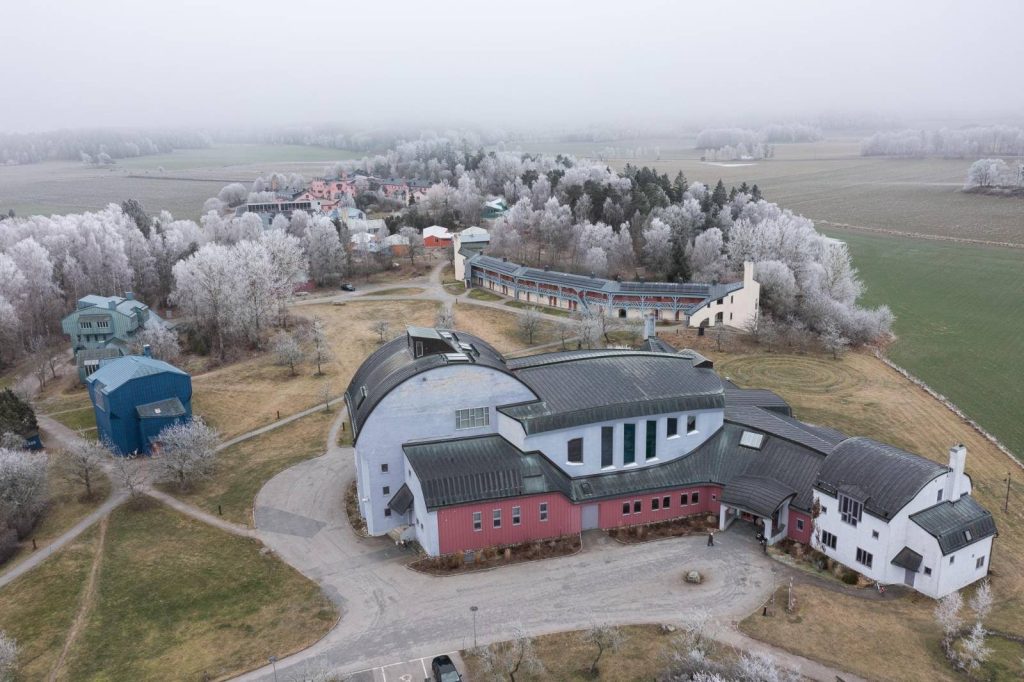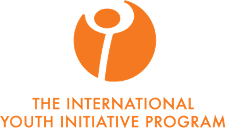Dear Friends of YIP,
Welcome to this first newsletter of 2023! We wish you a happy and mindful year ahead <3
During the winter break, some Yippies enjoyed the peace and quiet of an empty Tallevana, while others traveled with buses, planes and trains to visit friends and family. Luckily, the Yippies safely arrived back on Campus, ready for the second half of their YIP adventure.
As the full moon shines brightly through the snowy trees, I’m looking back on this first month of the new year. January has been a turbulent first month into the Community and Collaboration Module. We had the honor of welcoming Dr. Vandana Shiva into our circle. She widened our view of collaboration to include all of the other life forms we share this wonderful planet with. We went through conflict and worked with differences, we held space for emotions like anger to be expressed, and we experienced coming together through singing, dancing and moving during the course with Slava Teater.
In this newsletter, Tara shares some of the inspiration she got during the course with Dr. Vandana Shiva, Lidewey ferments the workshop with local market gardener Niklas on the topic of fermentation, Yander reflects on the week about Dialogue and Group Dynamics, Soma tells of his experience with the MESA method and Farranika shares some of her insights during the Slava theater course. Lastly, we share with you the recording of Dr. Shiva’s public lecture on the topic of Real Food, Real Farming.
Happy reading!
Warmly,
Tessa
In this newsletter you will find:
– Biodiversity, Food Sovereignty and Regeneration written by Tara Moghbel
– The Art of Fermentation written by Lidewey Huybrechts
– Dialogue and Group Dynamics written by Yander Fabri
– Action Based Prototyping written by Soma Baker
– Slava Theatre written by Farranika Barnum
– Video recording of Real Food, Real Farming with Dr. Vandana Shiva
Biodiversity, Food Sovereignty and Regeneration
– with Dr. Vandana Shiva –

This morning I looked out the kitchen window to see the most beautiful ice-decorated spider’s web. It rekindled in my heart the joy and wonder that I felt during our time with Dr. Vandana Shiva.
In the conference room of the culture house, she sat with her cup of tea and spoke of the web of life to the Yippies and many others from the wider community. We listened with much excitement as, with an incredible amount of love and humor, she painted this picture; a food web, full of beauty and perfection, full of giving and taking, and a community of all things. With incredible knowledge and insight, gained through extensive research and traditional practices, she painted a picture of the attacks made by a few large companies on the freedom and health of the seed and consequently all species.
Dr. Vandana Shiva was with us for two days culminating in a public lecture in the culture house. During this time we discussed many topics including agriculture (both monoculture and regenerative), the seed and seed sovereignty, colonialism, climate change, activism, hierarchy, and globalization. There was much time for asking questions and Dr. Vandana Shiva always listened so carefully and openly. Her answers were always so insightful and deeply rooted in her beliefs, formed out of a solid understanding of the most advanced sciences, the old indigenous practices, and most importantly her own life experience and that of her fellow human beings.
I was consistently amazed by Dr. Vandana Shiva’s ability to look at a subject from all angles at once and to come to a better understanding through that. Hearing her speak I realized that even in my thinking there are so many divides and boxes that if we are able to integrate them, one can become so free in one’s understanding and creative in solutions. The way she sees the world brings the reality of interconnectedness into the very processes of forming thoughts and empowers one to act out of freedom in a way that makes an impact. Her very presence was so inspiring and empowering that I feel that my words cannot do it justice. However, I hope that I will be able to take the deep understanding I gained, that each of us has the power and ability to find everything we need to make a difference, into the rest of my life.
by Tara Moghbel

The Art of Fermentation
– with Niklas Gothlin –
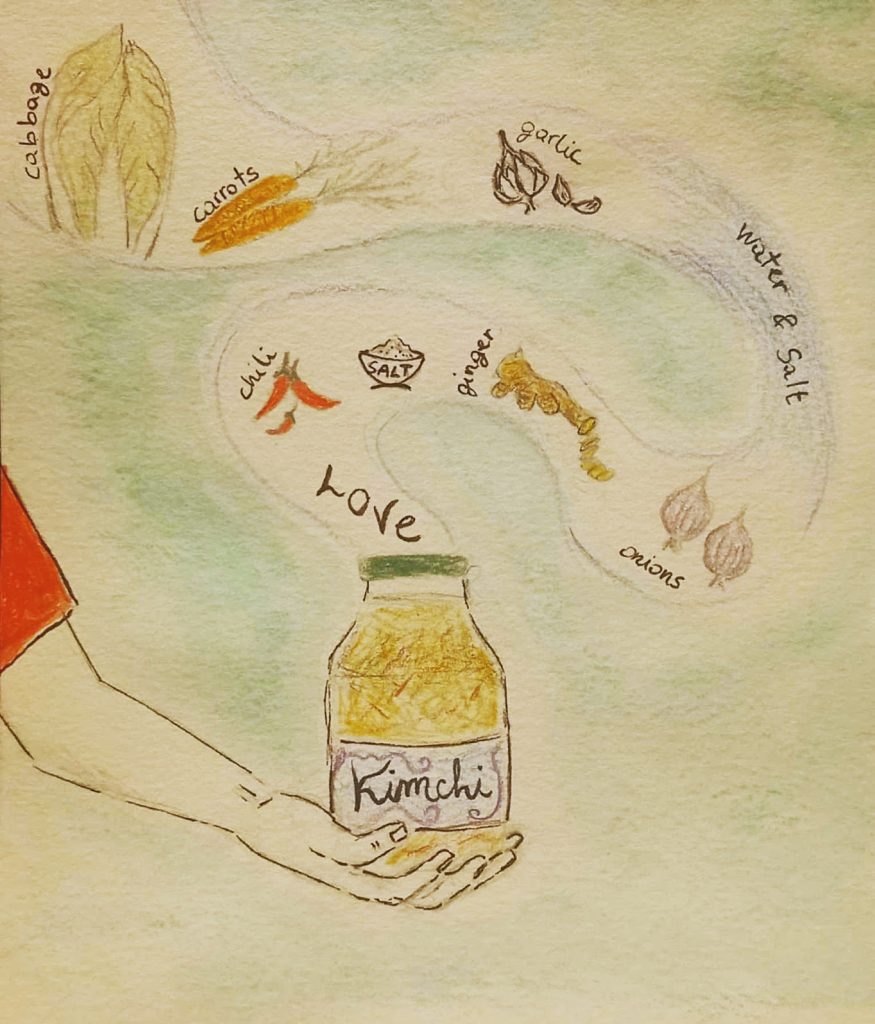
Niklas Gothlin was invited to talk about fermentation. A great passion of his. He started by explaining what happens during fermentation and he gave us the parameters for good fermentation, which I would like to share with you:
- Keep oxygen out
- Let CO2 out
- Maintain the optimal temperature
- Leave to ferment for the right time
- Use fresh, good quality vegetables (preferably organic)
- Use the right amount of salt (2% is the rule of thumb for dry ferments, 3.5-5% for a brine)
And that’s it. If it’s your first time fermenting, maybe a cookbook or the internet will support you with more information.
To show how this works in the kitchen, Niklas showed us how to make kimchi, kombucha and how to ferment carrots with cabbage. It was nice to see him talk so passionately about fermenting. I really admired how knowledgeable he is on this subject. For me, it was also interesting to see what you can do with leftover vegetables or with the big harvest from your garden. I want to thank Niklas for giving this course and for showing us the theory in practice.
by Lidewey Huybrechts
Dialogue and Group Dynamics
– with Brenno Kaschner Russo and Allan Sousa –
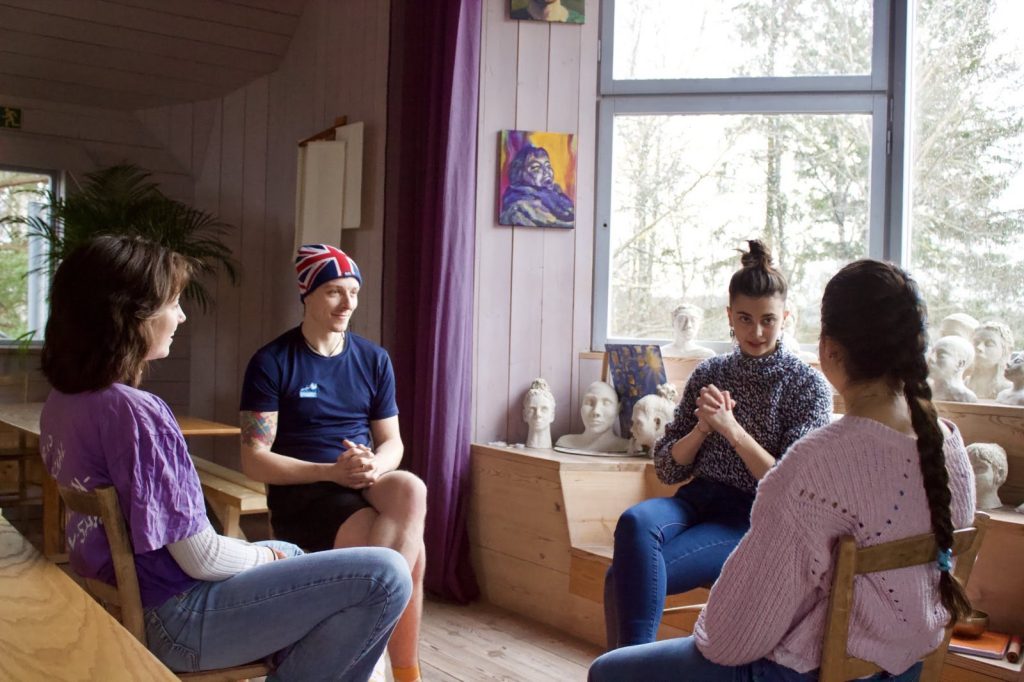
Although I said during the check-in on Monday morning that I expected intensity, it was an unexpectedly intense week.
The course always started with creative check-ins that brought a lot of laughter in the group. This joyful start of the day was helpful to be able to digest the week’s course.
Unconsciously our language is full of ‘connection blockers’, such as judgment, comparison, generalization, blame, etc. How can we instead communicate towards understanding and connection? The core structure of this kind of communication consists of four building blocks: observations, feeling, expressing needs and requests/possibilities.
First of all, we need to be able to observe our environment subjectively. Then, it’s important to tune in with your feelings. We previously considered feelings like anger, sadness and fear to be negative, and only joy to be positive, we now learned to see how feelings inform us about our needs. If we’re able to read our feelings, they can tell us a lot.
During the week, these four core feelings are all to some extent present. Anger is needed to get out of bed through willpower. I could experience for myself a little bit of anger when I had to step into a cold shower. On Tuesday, we expressed anger in a controlled environment. It was so interesting to experience this: I felt anxiety just before I started screaming, I felt anger while I was screaming and I felt tears coming up afterwards and when I heard others screaming.
Later on during the week it was interesting to discover the needs behind feelings. Through consciousness, vulnerability and listening, we’re able to read the needs behind our feelings. We have to listen to ourselves before we can listen to others. In an ‘old’ way of communicating, we talk before we listen but if we’re able to listen first to ourselves (self-empathy), then to others (empathic behavior) and then talk (authentic expression), a dialogue can occur rather than a discussion, which is more successful in solving a conflict.
Later in the week we experienced how we can listen to others: listening to the essence of what has been said (you feel X because you need Y, is that so?). It was really hard to get the essence out of someone’s story, but it was good to practice it and definitely something to take into the future in order not to lose myself in my own thoughts while listening to others.
On the final day we tapped into listening to the collective, which can be represented by a circle. We applied everything we had learned and experienced during the week in order to create a dialogue instead of a discussion. A discussion is often analytical, a ping-pong of arguments, people feel a need to defend their case and in a discussion someone needs to win in the end. In a dialogue, there is a stream of meaning flowing inbetween the two parties, every input is important, the focus is on listening and there is a collective build-up. For a real dialogue, both sides are ready for change and step voluntarily into it.
To wrap up, it was an intense and interesting week, which we could finish with a really nice dialogue about ‘feeling safe in the collective’ while we were sitting in the Skyspace. It was beautiful.
by Yander Fabri
Action Based Prototyping
– with Brenno Kaschner Russo –
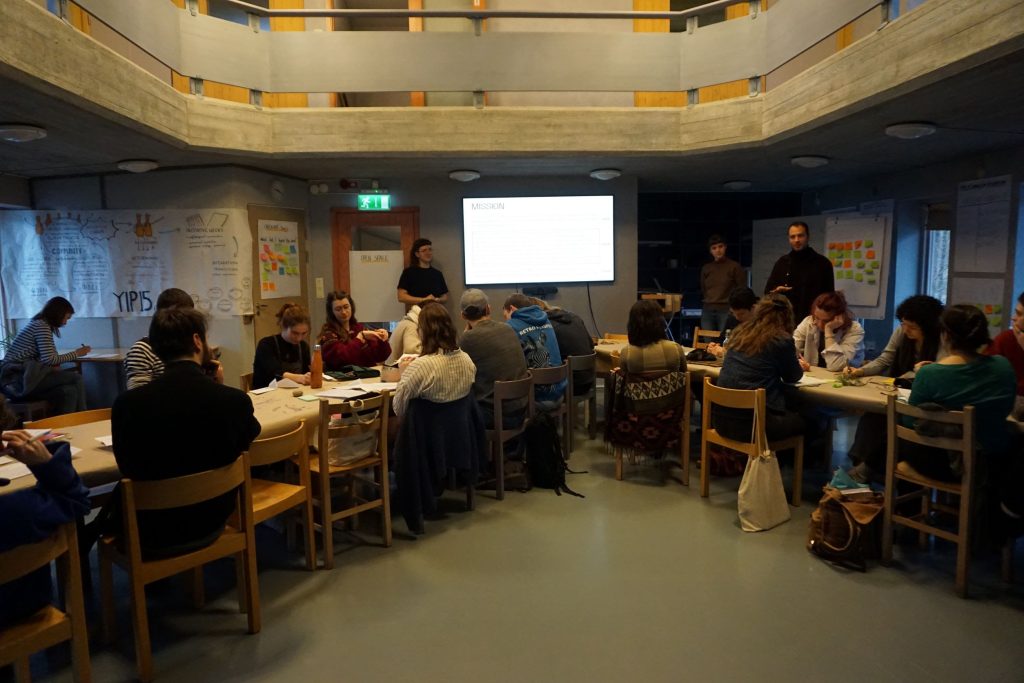
In our second week with Brenno, he brought to us the MESA method. The MESA method is a way of capitalizing on the creative energy in the room to produce tangible projects and prototypes. Through 5 days of structured work around a set of long tables, we set forth as a group on our Mission towards creating an Initiative Forum prototype in the Hive (our learning space) to push our ticket sales up and show our spark to the world.
It felt very different to sit around tables instead of on the floor chairs facing the front, or in a circle facing each other. Something about this felt very focused and an excitement mixed with uncomfortability for the new arose in me.
We then began to split into new groups for the weeks task based on our group’s interpersonal skills/points of inspiration and rode the waves of confusion, for putting more work on our shoulders after having so much to do already and set groups we are already in for the manifestation and actualization of our Initiative Forum.
The Big elephant in the room seemed to yell. Why are we doing this? Soon after in the making of the teams something started to bubble in me, a small thread of understanding perhaps… as the amorphous tension wafted thick in the air, a gradual picture began to form in my head.
I saw the Hive being turned into a film studio, decorated with plants and ornaments of life, perhaps with elements of sparks resembling the microcosm of our Initiative Forum. Here we would present singing, dancing, group games, and ceremony as well as share snippets of what we will bring in March. Paired with the films that our new groups came up with to show ourselves as a group, being shared on the screen. This would take place in front of a physical audience in the Hive, as well as an online crowd who could tune in from the interweb and experience games and ceremonies as well. Meanwhile all of this would be filmed in real time for further footage of the event to help market etc. As the process continued I spoke here and there through the confusion about specific clarity points but never brought myself to share this Idea that was brewing in my head. My frustration grew, that I didn’t share my idea for it felt very uncomfortable too. However, soon enough in a short time, pieces of the idea started to come up through other voices in the group as we developed our idea over the coming days.
Then there were two consecutive night cafes hosted in Tallevana (our shared housing) where we worked together on our projects. On the first night, I shared my idea with a good friend. She had been questioning the whole process and seemed to be in a melancholy mood emanating doubt. After sharing my picture with her something seemed to click. A bulb of inspiration began to glow and over the next few hours of that evening, she developed the idea into a tangible three phase journey that people would walk together. Journeying through the phases of Others, Self and Nature in tandem with the rhythm of the days of our Spark to Flame Initiative Forum, and so it became real and we created this event as a group on that Friday.
So I leave you with the question: What are Ideas? Where do they come from and where are they going? How do we have new thoughts? How can I allow the idea to create itself fully?
by Soma Baker
Slava Theatre
– with Elin Tisell and Viktoria Siwek –
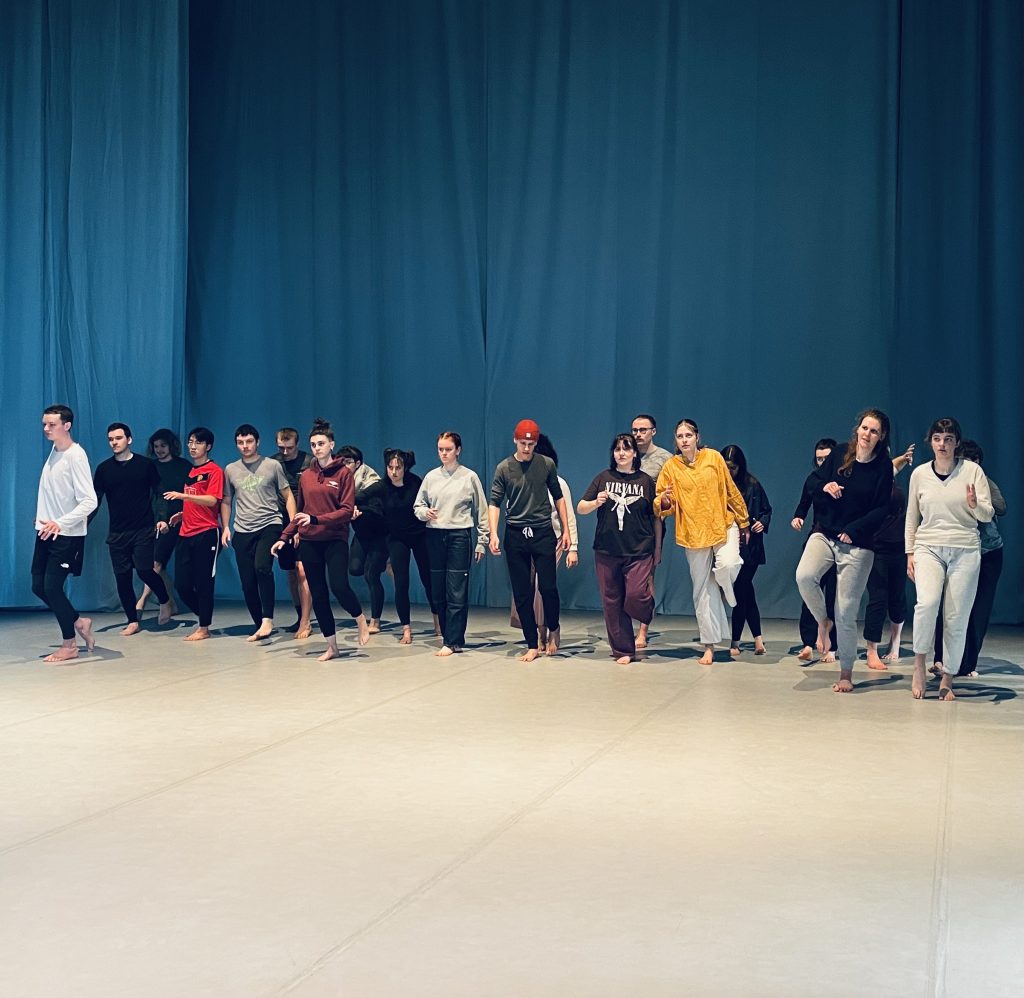
Slava Theater was one of my favorite courses thus far; we explored a wide range of movement, from acrobatics and circus to dancing and rhythm, running in many different forms with others and alone, lots of singing, oftentimes in close harmony as we ran through fields of snow and ice, and more! We explored the ranges and limits of our own and others’ physical bodies, challenging our strength, our coordination, our voices and our minds. To me, it seemed as though the movement brought us together as a community in a new way. I gained a deeper level of familiarity and comfortability with the others in the group; together we experienced what it was to move like a murmuration of birds in the sky, to be the water caressing a bed of seaweed and to be the seaweed being pushed and pulled by the current. Together we lifted stones the size of buildings, we faced the strongest of winds, we fought on battlefields. We each played puppet master and puppet, experiencing our own individuality and agency while also being part of a much greater whole, and navigating the complexities therein.
Many of the exercises provided some deep insight into the nature of my strengths and vulnerabilities, as well as those of others, in areas that transcend physical movement. Throughout the week we were able to enter into a place of pure expression and exploration and co-created a sense of unity and oneness in movement. Ultimately, Slava Theater instilled in me a sense of lasting empowerment to feel joy in running and movement, opening my eyes to what is possible.
by Farranika Barnum
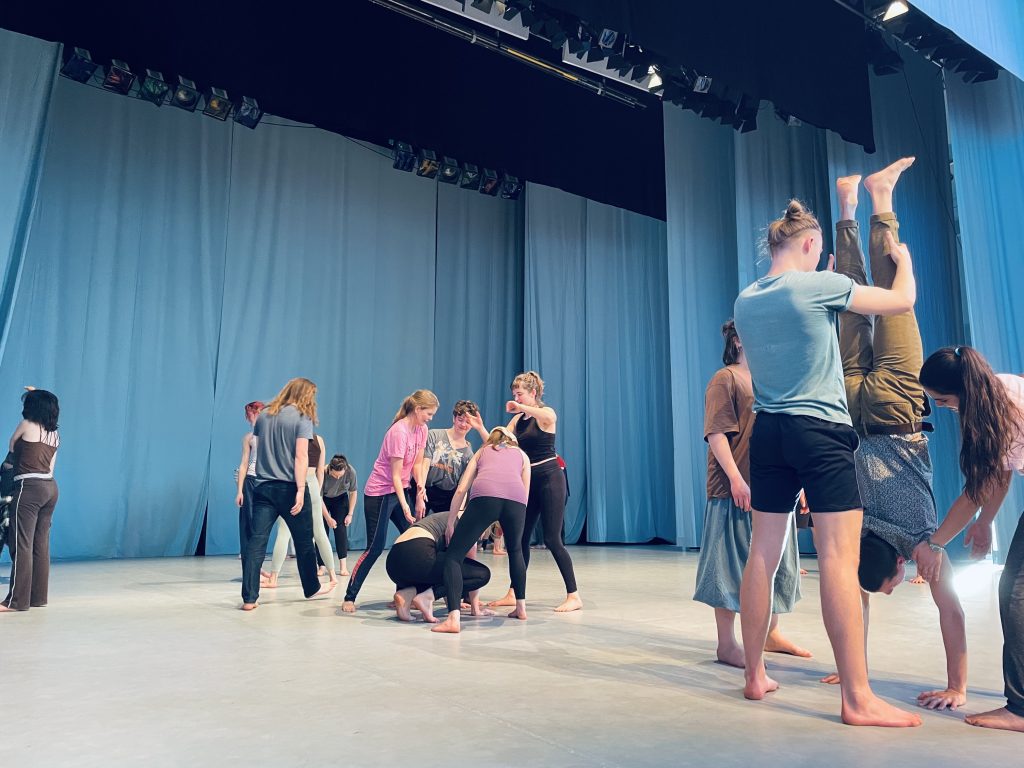
Real Food, Real Farming
– with Dr. Vandana Shiva –
After the winter break we had the honor of welcoming Dr. Vandana Shiva into our circle. Dr. Shiva shared stories with us about gardens of hope, seeds of life and farming for regeneration of the land. Everything she shared was filled with her love for life and deep knowing about the interconnectedness of the world. We are very grateful for these incredibly inspiring days.
During the public lecture, Dr. Shiva talked about Real Food, Real Farming as the path towards a future in harmony with life. We hope you enjoy!
INVITATION FROM YIP15
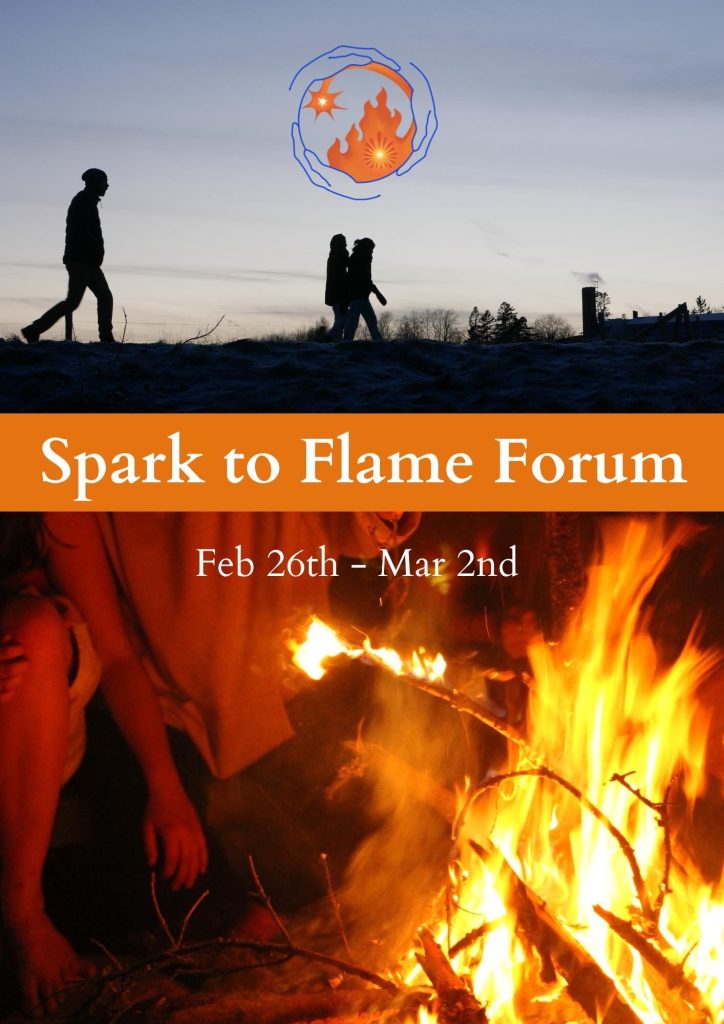
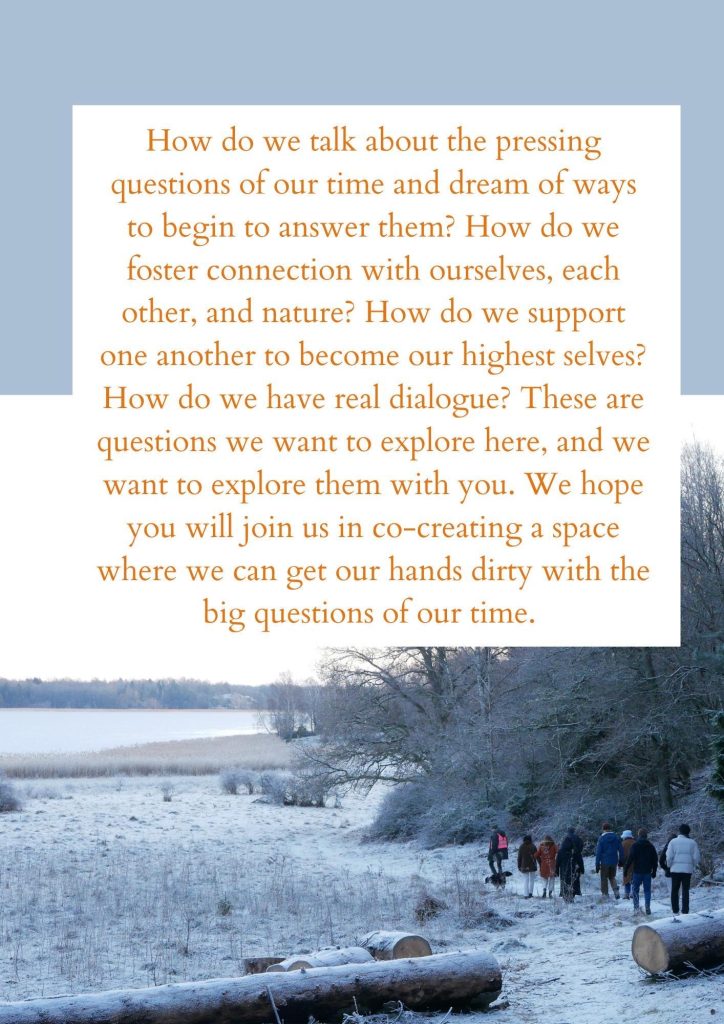
You are warmly invited to our Spark to Flame Forum! Tickets can be found on our website.
APPLY FOR YIP16

The applications for the 16th edition of YIP (2023-2024) are open! It is very exciting to see your applications coming in.
With the first deadline coming closer (March 15), we would strongly encourage especially those of you who need a VISA to apply as soon as possible, because it can take time to process.
We have scheduled two new online LIVE CHAT’s if you would like to hear more about the program from an Organising Team member and ask your questions.
– Thursday 30th March 20:00 CET
– Tuesday 11th April 10:00 CET
If you have any questions or would like the Zoom Link for the LIVE CHAT, please email [email protected]
We look forward to receiving your applications!
Warmly,
YIP Organising Team
In the Next Newsletter you will find:
– Self Designed Curriculum Kick Start
– Art of Hosting II
– Initiative Forum
